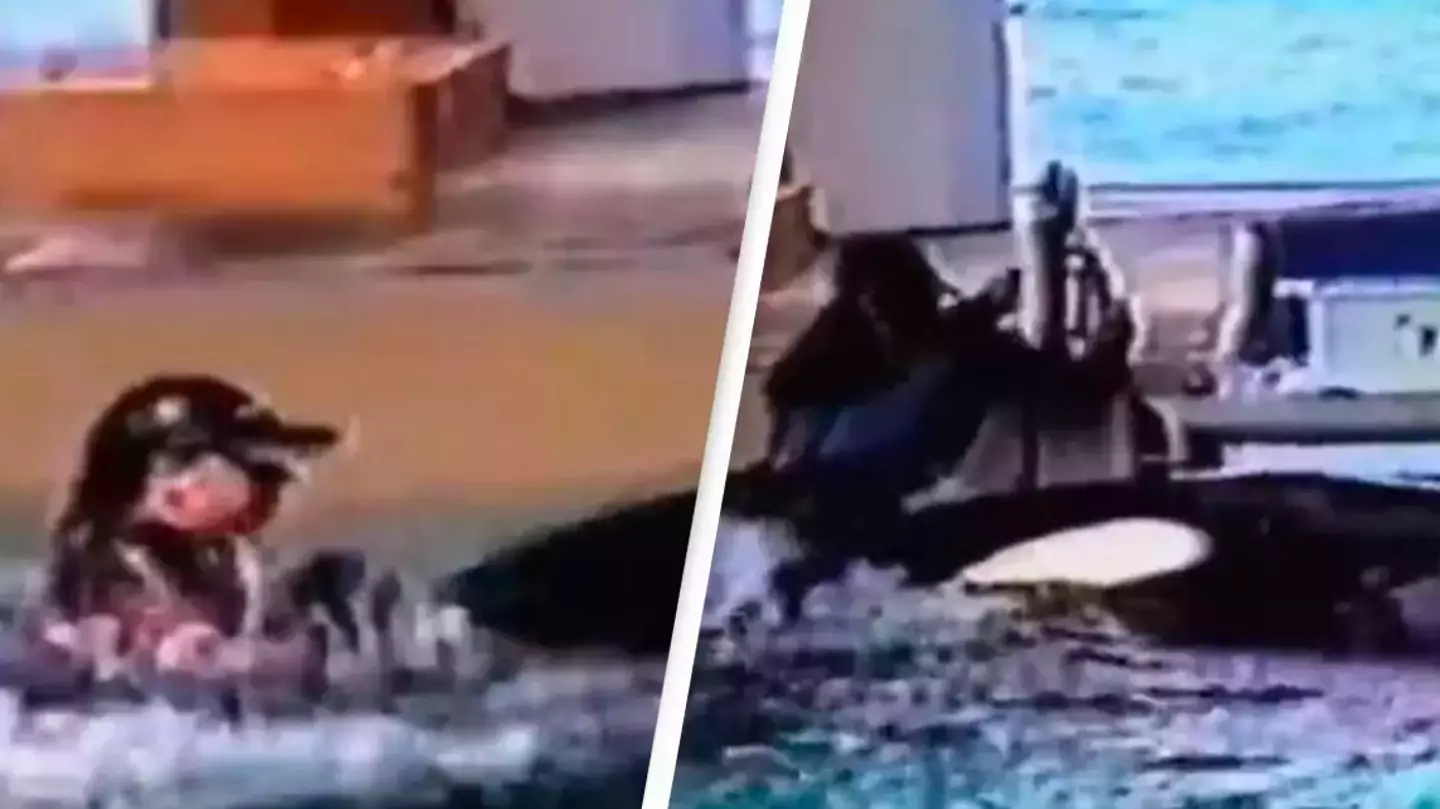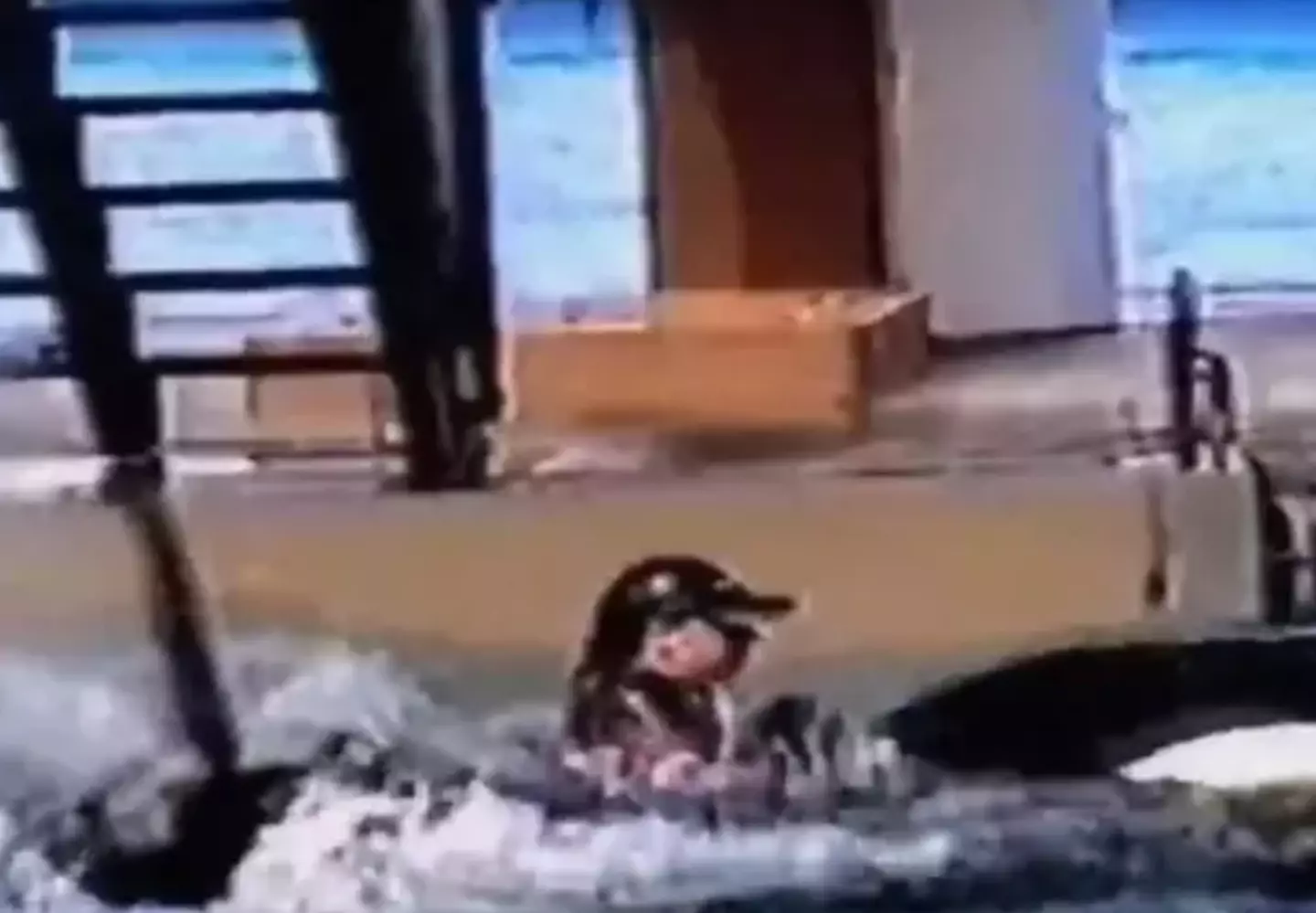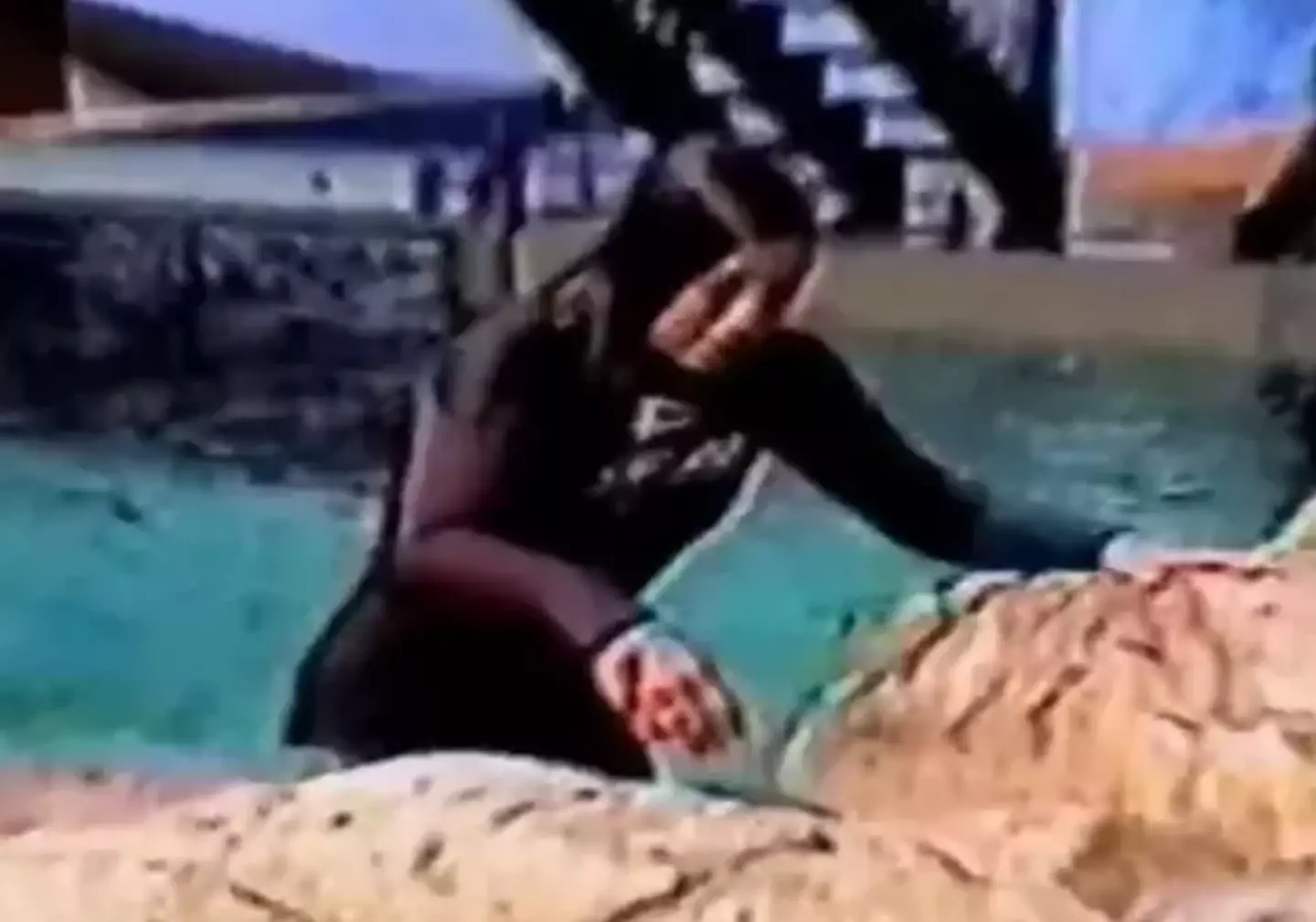
Terrifying footage shows the moment a SeaWorld trainer screamed for help as she was dragged under the water by two captive killer whales.
Aquariums across the globe have long been subject to criticism from activists and animal lovers arguing the creatures inside shouldn't be in captivity, with orcas considered one of the more controversial animals in the tank.
Attention on the issue increased significantly following the release of the 2013 documentary Blackfish, which didn't hold back in showing the realities of life at SeaWorld.
Advert
I dread to think of anything quite as scary as being attacked by a couple of 6,000lb orcas, but that's exactly what happened to trainer Tamarie Tollison.
The incident took place on February 24, 2010, when 28-year-old Tollison was dangling her feet in the tank water before being viciously dragged by her foot into the water by the two whales, Orkid and Splash.

Recalling the scary experience, former trainer John Hargrove, said: “She’s under the water, Splash and Orkid both have her, she’s totally out of view, no other trainer knows that this is happening.
“People start to scream. You hear Tamarie just scream out ‘somebody help me’ and the way she screamed it was just blood curdling.
"She knew she was going to die.”
Thankfully, Tollison was able to survive the attack after quick-thinking trainer Robin Sheets released a third, more dominant orca named Kasatka into the tank, whose presence forced the other orcas to let Tollison go.
The reason behind the orcas' aggression was apparently put down to being in 'solitary confinement', which allegedly caused the sea creatures to suffer from 'physical and psychological damage'.
Hargrove explained: "Physical and psychological damage endured by human prisoners in solitary confinement is well documented.
"Orcas at amusement parks such as SeaWorld suffer the same fate.

"I can tell you from my 14 years of experience that I personally witnessed the orcas – as well as other dolphins and marine animals – suffer the same physical and psychological trauma.
"Imagine spending your entire life trapped in a small enclosure."
A SeaWorld spokesperson has previously responded to the claims, saying: "There is nothing new in these claims. The wild characterizations from this former employee – who has not worked at SeaWorld in any capacity for 10 years – are designed to get clicks, not communicate facts or science.
"The fact is SeaWorld is independently accredited, reviewed, and certified by both federal wildlife agencies and independent third party experts to uphold the highest standards of animal care.
"Much of what the world knows about killer whales today is because of what has been learned through nearly 60 years of care and study of orcas in accredited zoological facilities such as SeaWorld.
"That knowledge and expertise continues to directly benefit the understanding of the health and conservation of wild orca populations. SeaWorld ended its killer whale breeding program in March 2016."